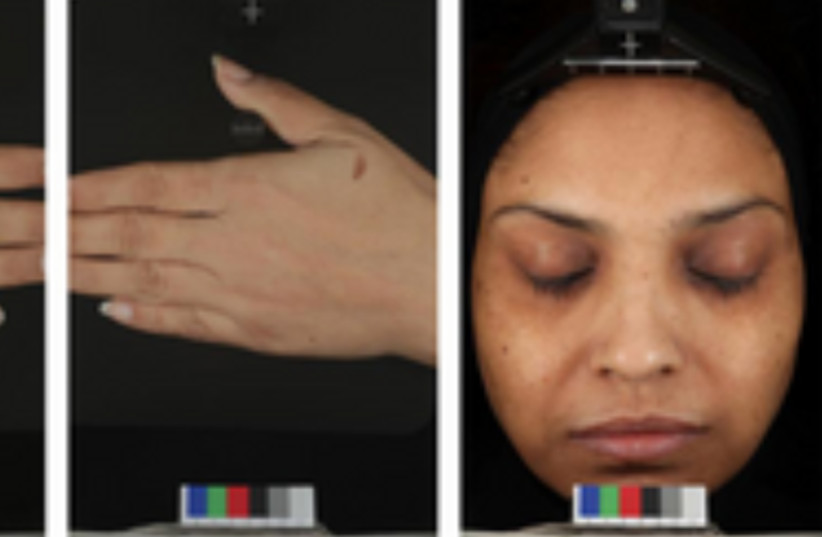Women and men think they can look younger than their age by injecting Botox or skin fillers like hyaluronic acid – but they’re wrong. A new study by skin experts in Tallinn, Estonia shows that human chronological age can be assessed with artificial intelligence (AI) examination of the dorsal part of the hand. They have just published their findings in Experimental Dermatology journal titled “Predicting human chronological age via AI analysis of dorsal hand versus facial images: A study in a cohort of Indian females.”
Visual estimation can be highly inaccurate. However, the indisputable importance of these markers is explained by their great practical value as a target for the cosmetology and cosmetics industry. Dark circles and swelling under the eyes, pronounced “crow’s feet” in the corners of the eyes, the appearance of nasolabial folds, enlarged pores in the T-zone of the face, pigment spots, pilling in the forehead and cheeks zone, and stooped mouth corners are all pronounced features of the face that prevent us from looking younger.
“As for hands, cosmetic concerns related to aging include fingernail defects, excess skin, and prominent veins, as well as hyperpigmentation of the dorsal sides,” they wrote. “That is why dorsal hand skin is considered an important target for aesthetic treatment. In hands, features like wrinkles, knuckles, and bone prominence were significant for age prediction.”
Since visual estimation can be highly inaccurate, the import of these markers is explained by their great practical value as a target for the cosmetology and cosmetics industry.

Haut.AI, a leader in responsible skincare artificial intelligence (AI) development, announced their “breakthrough research paper” demonstrating the effectiveness of using hand images for accurate age prediction. This innovative approach offers a viable alternative to traditional facial photo methods and promotes fairer AI solutions.
Using AI models for accuracy
They used AI models trained on hand images to achieve comparable accuracy to those using facial images, with an average error of 4.1 and 4.7 years in predicting chronological age. This research is particularly significant for ethnic skin, as it was trained using the Indian population dataset and represents the first AI model for age prediction specifically designed with a diverse dataset that includes a wide range of skin tones.
“Our research shows that your age can be determined just as accurately from a picture of your hands as from your face,” said Anastasia Georgievskaya, the CEO of Haut.AI, who led the research team. “This not only opens doors for new applications of AI technology but also has the potential to mitigate biases often associated with conventional systems. This aligns perfectly with our commitment to developing fair and responsible AI solutions.”
The study goes beyond just the accuracy of age prediction. By analyzing how specific features on hands and faces influence the model’s predictions, the research contributes to a better understanding of the aging process.
